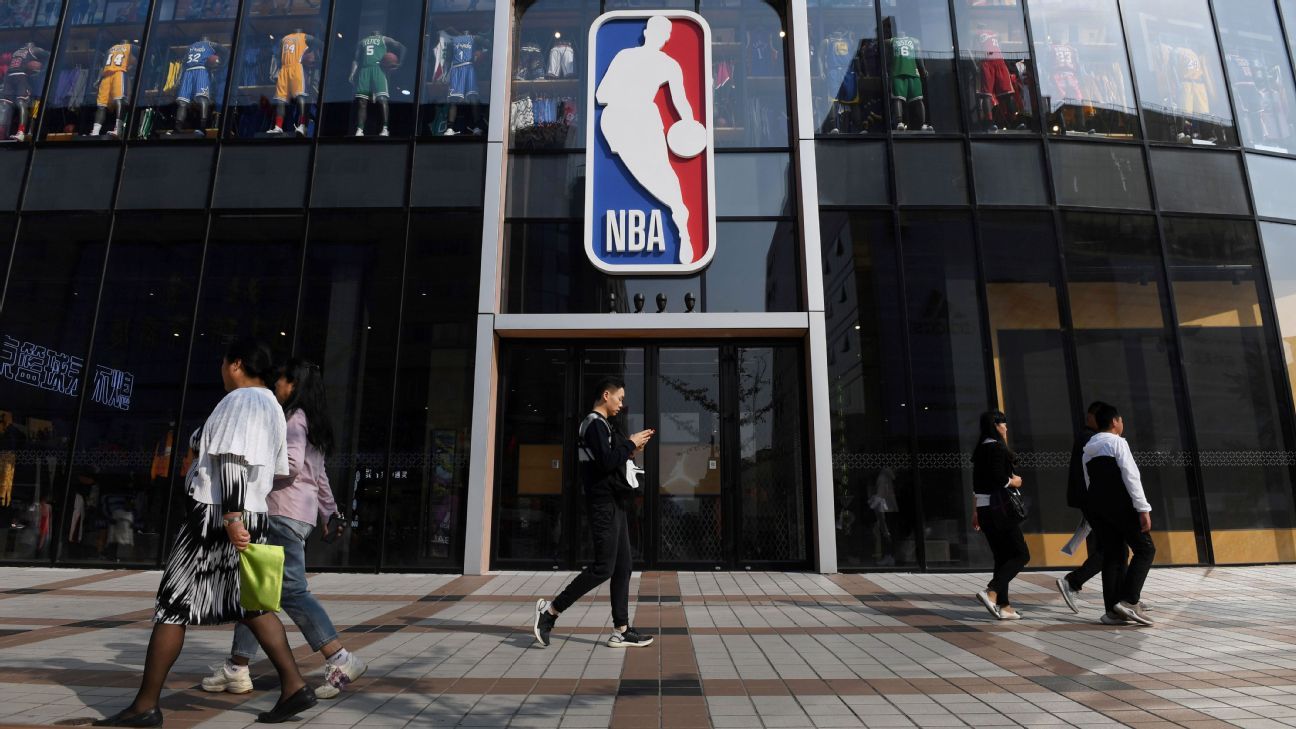A bipartisan Congressional commission, citing the NBA’s stated values, called on the league to ban the sale and use of shoes and other sports apparel made by forced labor in China and to meet with victims of the authoritarian government’s repression.
In a letter sent Friday to NBA Commissioner Adam Silver, leaders of the Congressional-Executive Commission on China asked Silver to meet with various groups to “learn about the sad reality of genocide.”
The letter also called on the league to ban any NBA-branded gear made with forced labor from China and prohibit players from wearing shoes on game days that were made by Chinese companies using cotton from Xinjiang, a region where more than a million Uyghur Muslims are now held in barbed-wire camps.
The commission, which includes members of Congress and White House appointees, also sent a letter to National Basketball Players Association (NBPA) President CJ McCollum of the New Orleans Pelicans expressing concerns about the union’s “potential complicity” in China’s use of forced labor.
Neither the NBA nor the union responded to multiple requests for comment from ESPN.
The letter to McCollum quoted from testimony in July by former NBA player Enes Kanter Freedom, who alleged the union pressured him to stop criticizing China’s human rights record. A day later, the committee says it learned that All-Star guard Kyrie Irving had signed a new contract with Chinese sportswear company ANTA.
“NBA players should not be subsidizing genocide by endorsing or wearing shoes and gear from Chinese sportwear companies complicit in forced labor,” wrote Chris Smith (R-NJ) and Sen. Jeff Merkley (D-OR), the commission chair and co-chair.
It’s estimated that 20 percent of the world’s cotton comes from Xinjiang. In 2021, Congress passed the Uyghur Forced Labor Prevention Act, which prohibits importing goods made with forced labor in China, particularly Xinjiang. The Act doesn’t address the use of apparel made in Xinjiang or players signing contracts with companies whose goods are made there.
The commission, which operates under a congressional mandate to monitor and report on human-rights issues in China, asked both Silver and McCollum to answer a series of questions and suggested both could be called to testify in future hearings.
Among the questions the commission asked Silver was whether NBA leadership would agree to meet with victims of China’s repression; whether the league’s offices in Beijing and Shanghai have any Communist Party members, particularly ones in leadership positions; and whether the NBA has a policy regarding forced labor.
Among the questions asked McCollum was whether the union would prohibit players from endorsing or wearing products made by Chinese companies using materials made through forced labor in Xinjiang.
Last year, ESPN identified 17 current NBA players who had shoe deals with four Chinese companies accused of being tied to forced labor in Xinjiang. None of the players or their representatives responded to requests for comment.
Leaders of the commission previously called on the NBPA to “encourage players to end their endorsement deals” with Chinese brands that used cotton and other materials from Xinjiang. At the time, outgoing NBPA executive director Michele Roberts responded that the union does not endorse the “commission of genocide or crimes against humanity.”
The NBA is wildly popular in China, and its business there is estimated to be worth $5 billion. Last year, ESPN examined the investments of 40 principal owners and found that they collectively have more than $10 billion tied up in China.
Tensions between the league and the government first surfaced in 2019 when then-Rockets general manager Daryl Morey tweeted support for pro-Democracy protestors in Hong Kong. The Chinese government responded by banning the NBA from state TV for most of three seasons, and a number of Chinese sponsors fled. The sanctions ultimately cost the NBA hundreds of millions of dollars.
